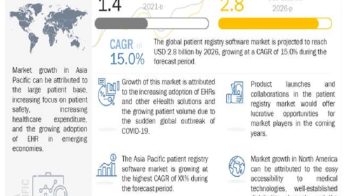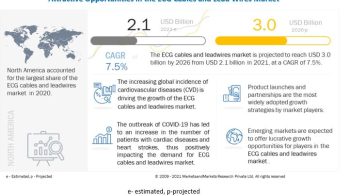High-throughput sequencing technologies have revolutionized genomics with their ability to generate large amounts of sequencing data at a rapid, cost-efficient pace. With the growing applications of genomics sequencing available, the selection of appropriate systems is an important consideration for end users. This choice is based on the type of experiment to be conducted. The selection criteria include sources of error, error rate, as well as the speed and costs of sequencing.
U.S.-based companies Illumina, Inc. and Life Technologies (acquired by Thermo Fisher Scientific, Inc. in 2014) are two leading providers of high-throughput sequencers. Illumina leads in the sequencing technologies market with its broad range of sequencing platforms, including the MiSeq and HiSeq Series. It recently launched the NextSeq system (in January 2014). Life Technologies offers stiff competition to Illumina’s sequencing systems with its Ion Proton Sequencer. While Illumina’s sequencers are based on synthesis technology, Life Technologies employs semiconductor technology in its systems.
The Ion Torrent, launched in December 2010 in the desktop sequencers market, witnessed high sales in 2011 as it was a first-of-its-kind DNA sequencing system based on semiconductor technology. In addition, the low cost further boosted sales of this system. Illumina retorted with the immediate launch of its low-cost bench-top instrument, the MiSeq, in January 2011. MiSeq generated high revenue for Illumina because of its large end-user base and demand for consumables. In addition, one of the break-through launches includes new HiSeq X Ten Sequencing System by Illumina in March 2014. The system is world’s first platform that delivers full coverage human genomes for less than USD 1,000, inclusive of typical instrument depreciation, DNA extraction, library preparation, and estimated labor.
While sequencing systems boast high-tech features, the major requirement of end users is high accuracy. Sequencers by Illumina have become quite popular because of their speed, price, and accuracy. The company enhanced its smaller MiSeq instrument to allow it to double-check the accuracy of runs performed on the HiSeq instrument, voiding the need to buy validation tools from other companies. Thus, control over the whole sequencing workflow, from beginning to end with its high-end machine (HiSeq) and low-cost alternative (MiSeq), automated sample preparation, cloud computing service (BaseSpace, for management of DNA data from the machines), and a growing array of independent software applications, to interpret or analyze data, on offer have given Illumina pole position in the high throughput screening technology market.

